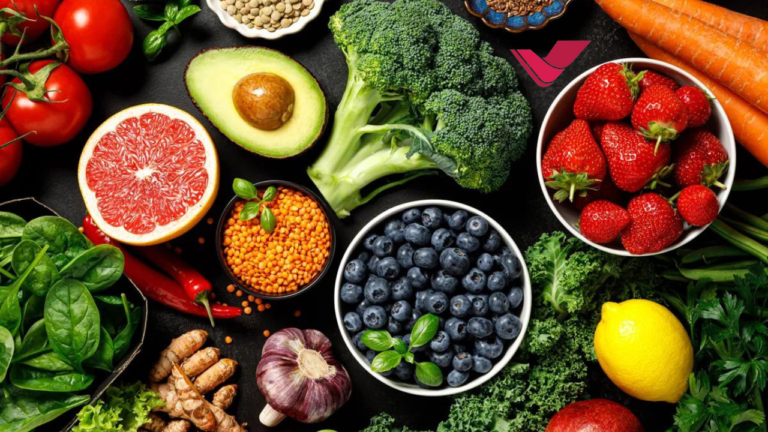Choosing the right foods can significantly impact your journey towards a healthier lifestyle when embarking on a diet. Vegetables are essential to any diet plan with their high nutritional value and low-calorie content. This article explores some beneficial vegetables that are particularly advantageous during dieting. It details their health benefits, ways to incorporate them into your meals, and their overall impact on your wellness journey.
Understanding the Role of Vegetables in Your Diet
Vegetables are powerhouse foods packed with vitamins, minerals, fiber, and antioxidants, yet low in calories. They are crucial in providing essential nutrients and enhancing satiety, which is vital for weight management. Including various vegetables in your diet can help you feel full longer, reduce calorie intake, and provide your body with the necessary tools to function optimally.
Nutritional Content and Benefits
Each vegetable carries its own set of nutrients and health benefits. For example, leafy greens are typically high in iron and calcium. At the same time, bright-colored vegetables like carrots and bell peppers are rich in beta-carotene and vitamin C. Vegetable fiber aids digestion, helps maintain blood sugar levels, and supports heart health.
How vegetable Aid in Weight Loss
Vegetables have a low energy density, meaning they provide fewer calories than their weight. Eating a more significant volume can fill you with fewer calories, making them ideal for weight loss. Additionally, the fiber in vegetables can slow down the absorption of sugars in the bloodstream, reducing hunger and promoting a feeling of fullness.
Top Beneficial Vegetables During Diet
Several vegetables stand out for their exceptional benefits during dieting. Here’s a closer look at some of these nutritional powerhouses:
Leafy Greens (Spinach, Kale, and Lettuce)
Leafy greens like spinach, kale, and lettuce are shallow in calories but high in fiber, vitamins A, C, and K, and minerals like iron and calcium. They can be easily incorporated into salads, smoothies, and dishes to bulk meals without adding excessive calories.
Cruciferous Vegetables (Broccoli, Cauliflower, and Brussels Sprouts)
These vegetables are not only rich in fiber but also contain glucosinolates, compounds that have been linked to reduced cancer risk. Their high fiber content benefits satiety, helping to keep hunger pangs at bay.
Root Vegetables (Carrots, Beets, and Sweet Potatoes)
While root vegetables are generally higher in carbohydrates, they are packed with nutrients and fiber, aiding in weight loss. Their natural sweetness also offers a healthy way to satisfy sugar cravings.
Allium Vegetables (Garlic, Onions, and Leeks)
Known for their distinctive flavors, these vegetables can add depth to any dish. They are associated with various health benefits, including improved cardiovascular health and immune support.
Bell Peppers and Tomatoes
Rich in vitamins C and A, these vegetables are flavorful and great for skin health and immune function. They can be easily incorporated into various dishes, from salads to stir-fries.
Integrating Vegetables into Your Diet
To reap the benefits of these vegetables, consider the following tips for integrating them into your daily diet:
- Start Your Day with Vegetables: Incorporate vegetables into your breakfast, such as in omelets, smoothies, or as a side dish.
- Snack on Vegetables: Opt for raw or lightly steamed vegetables as snacks instead of high-calorie alternatives.
- Make Vegetables the Star of Your Plate: Ensure that vegetables occupy the most space on your plate, especially during lunch and dinner.
- Experiment with Cooking Methods: Try various cooking methods like grilling, roasting, or steaming to discover what you enjoy the most.
The Impact of Vegetables on Long-Term Health
Beyond weight loss, including vegetables in your diet can profoundly affect your overall health. They can reduce the risk of chronic diseases, improve digestive health, and contribute to better mental well-being. By making vegetables a staple in your diet, you’re investing in your current health and setting the stage for a healthier future.
Conclusion
Incorporating a variety of vegetables into your diet can be a game-changer during your weight loss journey. They provide essential nutrients, help curb hunger, and promote a sustainable and healthy lifestyle. By making vegetables a cornerstone of your meals, you’re taking a significant step towards achieving your health and wellness goals. Remember, the key is to enjoy the process, explore different flavors, and discover the joy of eating wholesome, nutrient-rich foods.
By understanding the unique benefits of each vegetable and finding creative ways to include them in your meals, you can enhance your diet experience, ensuring it’s not only practical but also enjoyable and sustainable in the long run.
Read More: Fungus Treatment: An In-depth Guide.


